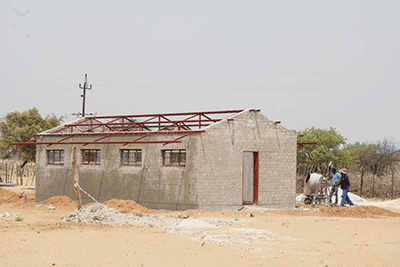Obrein Simasiku
OMUTHIYA – Nine permanent mini hostels have been completed at various schools in Oshikoto, replacing makeshift structures popularly used as community dwellings for learners.
These structures will house 634 learners, with each having a carrying capacity of 64, which includes both girls and boys. Priority will be given to learners who reside far from the schools.
“These hostels, which include ablution facilities, were constructed as part of the N$74 million Covid-19 relief funding to improve sanitation at schools. Therefore, this is an addition to five existing fully-fledged government hostels. Government decided to construct a conventional building and abolish makeshift structures,” said education director Aletta Eises.
Despite the acclaimed developments, learners will still be required to bring their own food to be prepared at schools. There are 221 schools in Oshikoto but only 10 had hostels. The lack of hostels has been exposing learners to all social ills, as they are forced to rent in informal settlements, squat with strangers or establish dwellings in the vicinity of the school, where there is no supervision.
“The 10 existing hostels are fully-fledged and up-to-standard, while the latest are conventional structures meant to improve the undesired makeshift structures and house the learners in a hygienic environment,” added the
director.
“Capital projects for future hostels are at Onkumbula, Ontananga SS, Reverend Juuso Shikongo (phase two), including Iipumbu, which benefitted under regional council Covid-19 construction project. As much as the government is trying, the challenges are enormous and cannot be addressed in a year. Therefore, a systematic and priority-based approach is regionally followed to address the accommodation challenges in the region, as learners walk long distances,” she stressed.
Eises said these were forwarded to the planning division last year – and it is just a matter of approval before actual work begins.
- osimasiku@nepc.com.na


